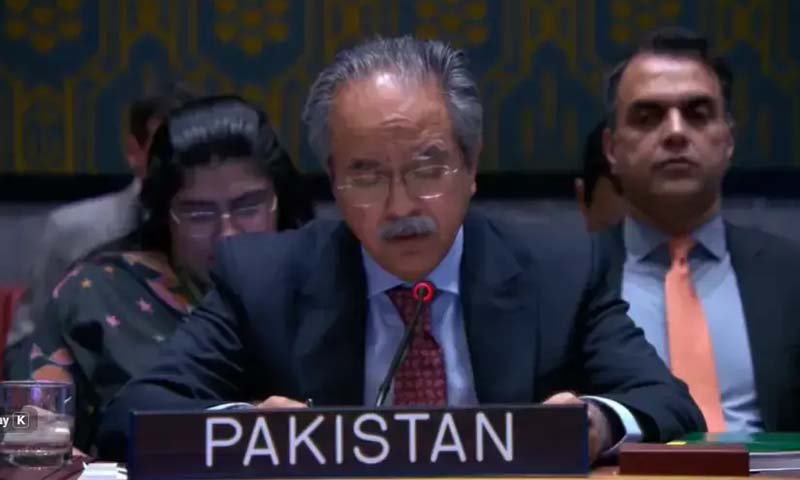Pakistan on Friday strongly condemned India’s unilateral and illegal suspension of the Indus Water Treaty (IWT), calling it a dangerous move that threatens regional stability and the principle of shared resource management. Addressing the UN Security Council, Pakistan’s UN Ambassador Asim Iftikhar Ahmad urged the global community to stop India from “weaponising” natural resources for political coercion.
Pakistan Condemns India’s Suspension of Indus Water Treaty at UN as Islamabad warned that New Delhi’s move undermines international water law and sets a troubling precedent for other nations. The Indus Water Treaty, brokered by the World Bank in 1960, has long stood as a model of cooperation between Pakistan and India, ensuring fair and predictable water sharing even during periods of conflict.
India placed the treaty in abeyance in April following the killing of 26 civilians in Indian Illegally Occupied Jammu and Kashmir (IIOJK), blaming Pakistan without offering concrete evidence — an accusation Islamabad has categorically rejected.
Speaking at the UN, Ambassador Asim Ahmad described India’s action as a “textbook example of deliberate weaponisation of shared natural resources.” He warned that such unilateral steps not only threaten ecosystems but also endanger the livelihoods of millions who depend on the Indus River.
“For more than six decades, the Indus Water Treaty has ensured peaceful cooperation and equitable sharing between our two countries,” he said. “India’s decision to suspend it unilaterally risks destabilising an already fragile region.”
Pakistan has maintained that the treaty is a legally binding international agreement with no provision for unilateral suspension. Islamabad has repeatedly declared that any attempt by India to block or divert Pakistan’s share of water will be considered “an act of war.”
In June, the Permanent Court of Arbitration ruled in Pakistan’s favour, stating that India’s suspension of the treaty was unlawful and had no effect on the court’s jurisdiction. The judgment reaffirmed Pakistan’s position that the accord remains valid and enforceable.
Ambassador Ahmad called on India to return to full compliance with the treaty and respect international law. He further urged the UN to recognise the environmental and security implications of resource conflicts, advocating for the inclusion of ecological concerns in global peacekeeping and political missions.

